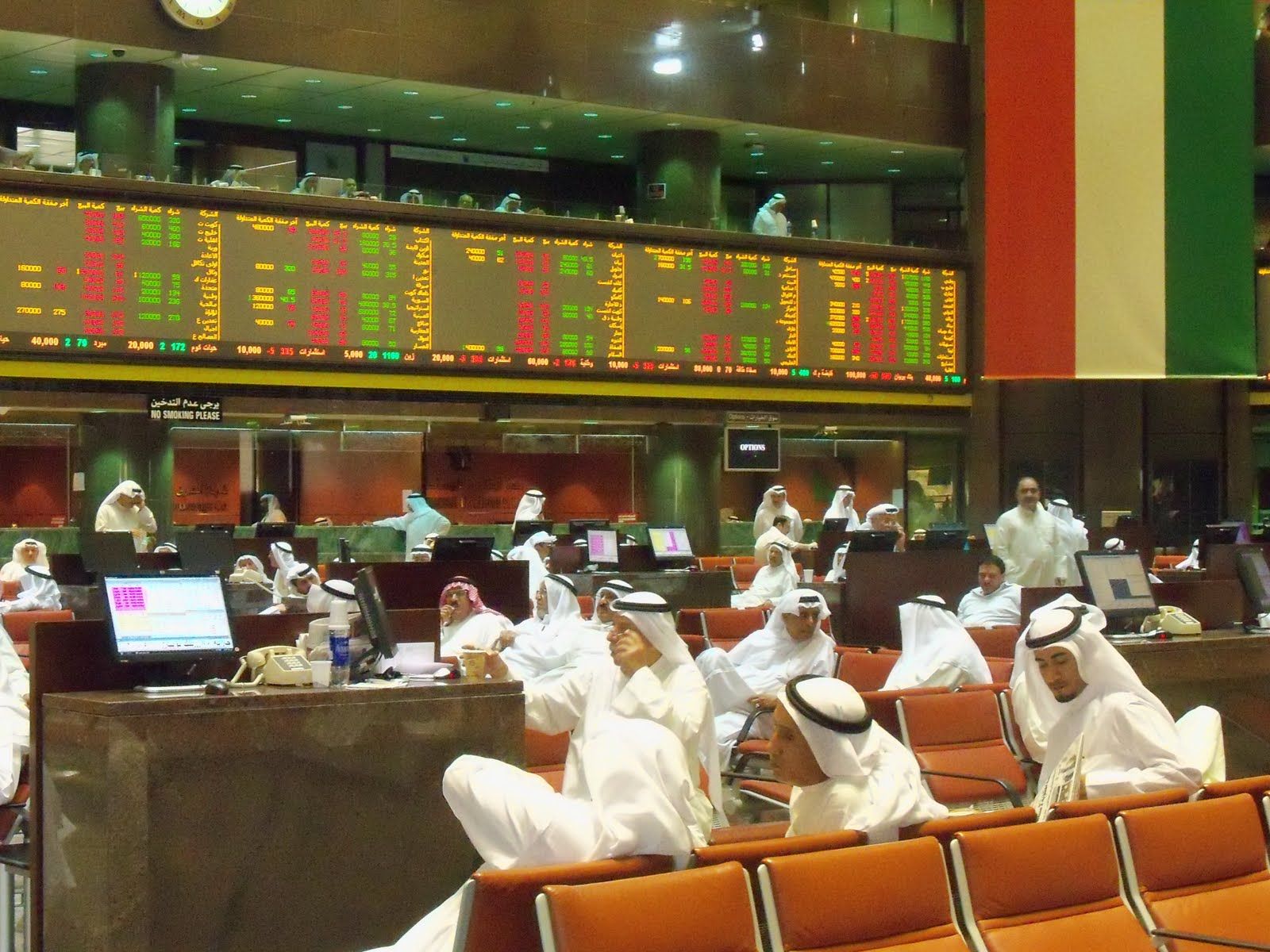 Traders at the Kuwaiti Stock ExchangeThe Arab states of the Gulf region have agreed to launch a single currency modelled on the euro, hoping to blaze a trail towards a pan-Arab monetary union swelling to the ancient borders of the Ummayad Caliphate, telegraph.co.uk reports.
Traders at the Kuwaiti Stock ExchangeThe Arab states of the Gulf region have agreed to launch a single currency modelled on the euro, hoping to blaze a trail towards a pan-Arab monetary union swelling to the ancient borders of the Ummayad Caliphate, telegraph.co.uk reports.
“The Gulf monetary union pact has come into effect,” said Kuwait’s finance minister, Mustafa al-Shamali, speaking at a Gulf Co-operation Council (GCC) summit in Kuwait.
The move will give the hyper-rich club of oil exporters a petro-currency of their own, greatly increasing their influence in the global exchange and capital markets and potentially displacing the US dollar as the pricing currency for oil contracts. Between them they amount to regional superpower with a GDP of $1.2 trillion (£739bn), some 40pc of the world’s proven oil reserves, and financial clout equal to that of China.
Saudi Arabia, Kuwait, Bahrain, and Qatar are to launch the first phase next year, creating a Gulf Monetary Council that will evolve quickly into a full-fledged central bank.
The Emirates are staying out for now – irked that the bank will be located in Riyadh at the insistence of Saudi King Abdullah rather than in Abu Dhabi. They are expected join later, along with Oman.
The Gulf states remain divided over the wisdom of anchoring their economies to the US dollar. The Gulf currency – dubbed “Gulfo” – is likely to track a global exchange basket and may ultimately float as a regional reserve currency in its own right. “The US dollar has failed. We need to delink,” said Nahed Taher, chief executive of Bahrain’s Gulf One Investment Bank.
The project is inspired by Europe’s monetary union, seen as a huge success in the Arab world. But there are concerns that the region is trying to run before it can walk.
Europe took 40 years to reach the point where it felt ready to launch a currency. It began with the creation of the Iron & Steel Community in the 1950s, moving by steps towards a single market enforced by powerful Commission and European Court. The EMU timetable was fixed at the Masstricht in 1991 but it took another 11 for euro notes and coins to reach the streets.
Khalid Bin Ahmad Al Kalifa, Bahrain’s foreign minister, told the FIKR Arab Thought summit in Kuwait that the project would not work unless the Gulf countries first break down basic barriers to trade and capital flows.
At the moment, trucks sit paralysed at border posts for days awaiting entry clearance. Labour mobility between states is almost zero.
“The single currency should come last. We need to coordinate our economic policies and build up common infrastructure as a first step,” he said.
Mohammed El-Enein, chair of the energy and industry committee in Egypt’s parliament, said Europe’s example could help the Arab world achieve its half-century dream of a unified currency, but the task requires discipline. “We need exactly the same institutions as the EU has created. We need a commission, a court, and a bank,” he said.
The last currency to trade in souks from Marakesh, to Baghdad and Mecca, was the Ottomon Piaster, known as the “kurush”. It suffered chronic inflation as the silver coinage was debased.
There is a logic to an Arab currency. The region speaks one language, has the unifying creed of “Umma Wahida” or One Nation from the Koran, and has not torn itself apart in savage wars – ever – in quite the way that Europe has in living memory.
Yet hurdles are formidable even for the tight-knit group of Gulf states. While the eurozone is a club of rough equals – with Germany, France, Italy, and Spain each holding two votes on the ECB council – the Gulf currency will be dominated by Saudi Arabia. The risk is that other countries will feel like satellites. Monetary policy will inevitably be set for Riyadh’s needs.
Hans Redeker, currency chief at BNP Paraibas, said the Gulf states may have romanticised Europe’s achievement and need to move with great care to avoid making the same errors.
“The Greek crisis has exposed the weak foundations on which the euro is built. The gap in competitiveness between core Europe and the periphery has grown wider and wider. The obvious mistake was to launch EMU without a central fiscal authority and political union, as the Bundesbank warned in the 1990s,” he said.
“The euro was created for political reasons after the fall of the Berlin Wall to lock Germany irrevocably into Europe. It was not done for economic reasons,” he said.
Ben Simpfendorfer, Asia economist for RBS and an expert on the Middle East, told the FIKR conference that the rise of China had paradoxically disrupted the case for pan-Arab economic integration.
There was a natural fit ten years ago between rich oil state and low-wage manufacturers in Egypt and Syria, but cheap exports from China have forced poorer Arab states to retreat behind barriers to shelter their industries. “The rationale for a single currency has become weaker,” he said.
The GCC also agreed to create a joint military strike force – akin to the EU’s rapid reaction force – to tackle threats such as the incursion of Yemeni Shiite rebels into Saudi territory earlier this year.
This is a major breakthrough after years of deadlock on defence cooperation.
The Sunni Gulf states are deeply concerned about the great power ambitions of Shiite Iran and its quest for nuclear weapons, to the point where the theme of a possible war between Iran and a Saudi-led constellation of states has crept into the media debate.
They nevertheless repeated on Tuesday that “any military action against Iran” by Western powers would be unacceptable.
 В Атырау -10
В Атырау -10